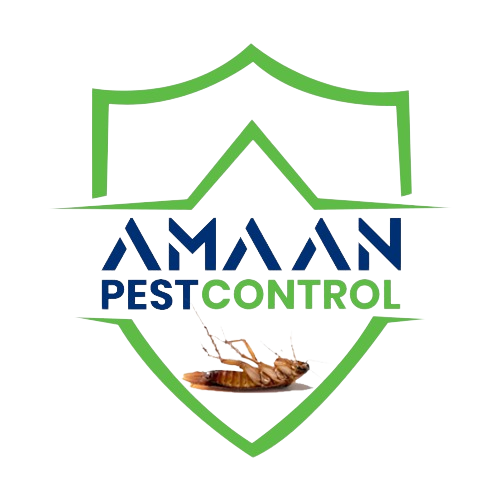Pest control is often thought of as a simple process of eliminating insects from our homes and offices. However, the importance of pest control goes far beyond just getting rid of these annoying and harmful creatures. Effective pest control is essential for maintaining public health and protecting the environment. Pests such as mosquitoes, ticks, and rodents can transmit diseases to humans. By implementing effective pest control measures, we can not only rid ourselves of pests but also help prevent the spread of diseases and protect our food and other important things.
What is pest control?
Pest control is the regulation or removal of a species defined as a pest, that impacts adversely human activities. Pests can be various insects and bugs that can cause problems in homes, farms, gardens, and businesses. Pest control measures may include the use of physical barriers, chemical pesticides, or other methods to eliminate pests. In some cases, pest control may involve the use of natural predators to control pest populations. Pest control can also involve the use of traps, baits, or other methods to kill pests. It is an important public health issue, as pests can transmit diseases and cause damage to food crops and property. It is important to identify and address pest problems as soon as possible to prevent further damage and protect human health.
Why is pest control important?
Pests are harmful to human health and the environment. Pest control is important for several reasons, including the protection of public health and safety. They can transmit diseases to humans, contaminate food and other household items, and cause physical damage to structures. In order to protect public health and safety, it is important to implement effective pest control measures to prevent pests from becoming a problem and to detect any existing pest infestations. This can involve a combination of measures such as exclusion, sanitation, and the use of pest control products. It is also important to regularly inspect for pests and to follow proper pest management practices to prevent future infestations
Pest control is an important aspect of maintaining public health and safety. Pests such as mosquitoes, ticks, and rodents can carry and transmit diseases to humans, causing serious illness. Proper pest control helps to prevent and reduce the risk of pest-borne diseases and other health hazards. It can also protect against damage to buildings and property, ensuring a safe and healthy living or working environment.
Pest control professionals use a variety of methods to identify and eliminate infestations, including inspections, trapping, and the use of pesticides. While pesticides can be effective in controlling pests, it is important to use them safely and responsibly to minimise any potential risks to human health and the environment. In addition to traditional pest control methods, there are also eco-friendly options available that use natural methods to control pests. These can be a good choice for those who are concerned about the potential negative impacts of pesticides on the environment and human health.
Pest control is important for public health and safety for several reasons:
- Pests can transmit diseases to humans. For example, mosquitoes can transmit malaria, while mice and rats can transmit diseases such as salmonella and Hantavirus.
- Pests can cause allergic reactions in some people. For example, exposure to dust mites or cockroaches can trigger asthma attacks in people with asthma.
- Pests can contaminate food and other household items. For example, cockroaches can contaminate food.
- Pests can cause physical damage to structures. For example, termites can cause significant damage to wood structures, while rats and mice can chew through wiring, causing fires.
Tips to prevent pest infestations
Pests can carry diseases and cause problems such as allergies, bites, and property damage. In order to prevent pest infestations, it is important to take steps to make your home or office less attractive to pests and to eliminate any potential sources. There are several simple measures that you can take to prevent pest infestations:
- Keep your home clean and clutter-free. Pests are attracted to it because it provides them with places to hide and breed.
- Repair any leaks or other sources of moisture. Many pests are attracted to moisture, so fixing any leaks or other sources of moisture can help prevent pest infestations.
- Seal any cracks or gaps in the foundation or exterior of your home or office. This will help prevent pests from entering your property.
- Use screens on windows and doors to keep pests out of your place.
- Store food in sealed containers. This will help prevent pests from getting into your food and prevent them from contaminating it.
- Regularly remove garbage and recycle items. Pests are attracted to garbage, so regularly removing it can help them from spreading.
- Trim trees and shrubs away from your home. This will reduce the number of places where pests can hide and enter your home.
- Use natural pest control methods, such as planting herbs and flowers that eradicate pests.
- Consider hiring a professional pest control company to regularly inspect and treat your home.
- Regularly inspect your home for signs of pests and take action if needed.
Overall, the importance of pest control for public health and safety cannot be overstated. Without effective pest control measures, pests such as insects, rodents, and diseases could cause widespread harm and disruption. By implementing a variety of pest control methods, including physical barriers, chemical pesticides, and natural predators, we can effectively manage and reduce pest populations. It is important to regularly inspect for signs of pests and take action to prevent infestations, in order to maintain a healthy and safe living environment. By taking steps to prevent and control pest infestations, we can protect ourselves, our families, and our communities from the negative consequences of pests.
